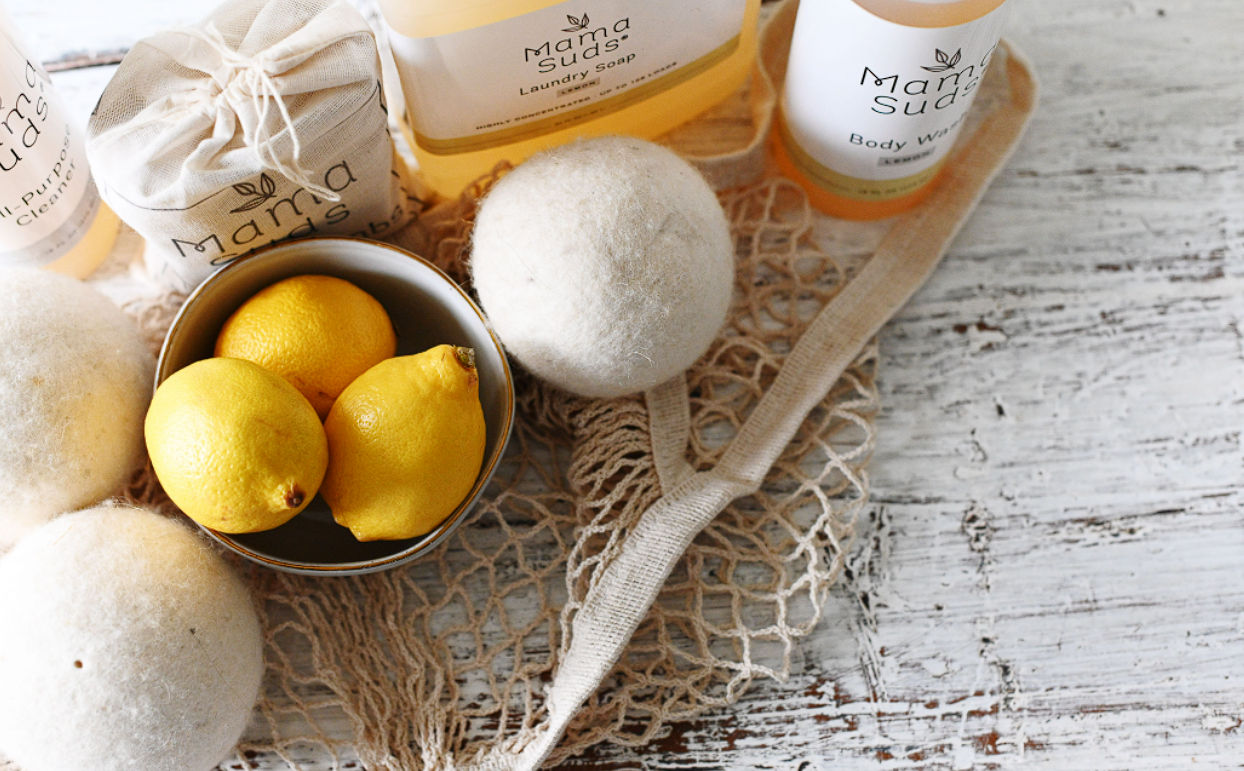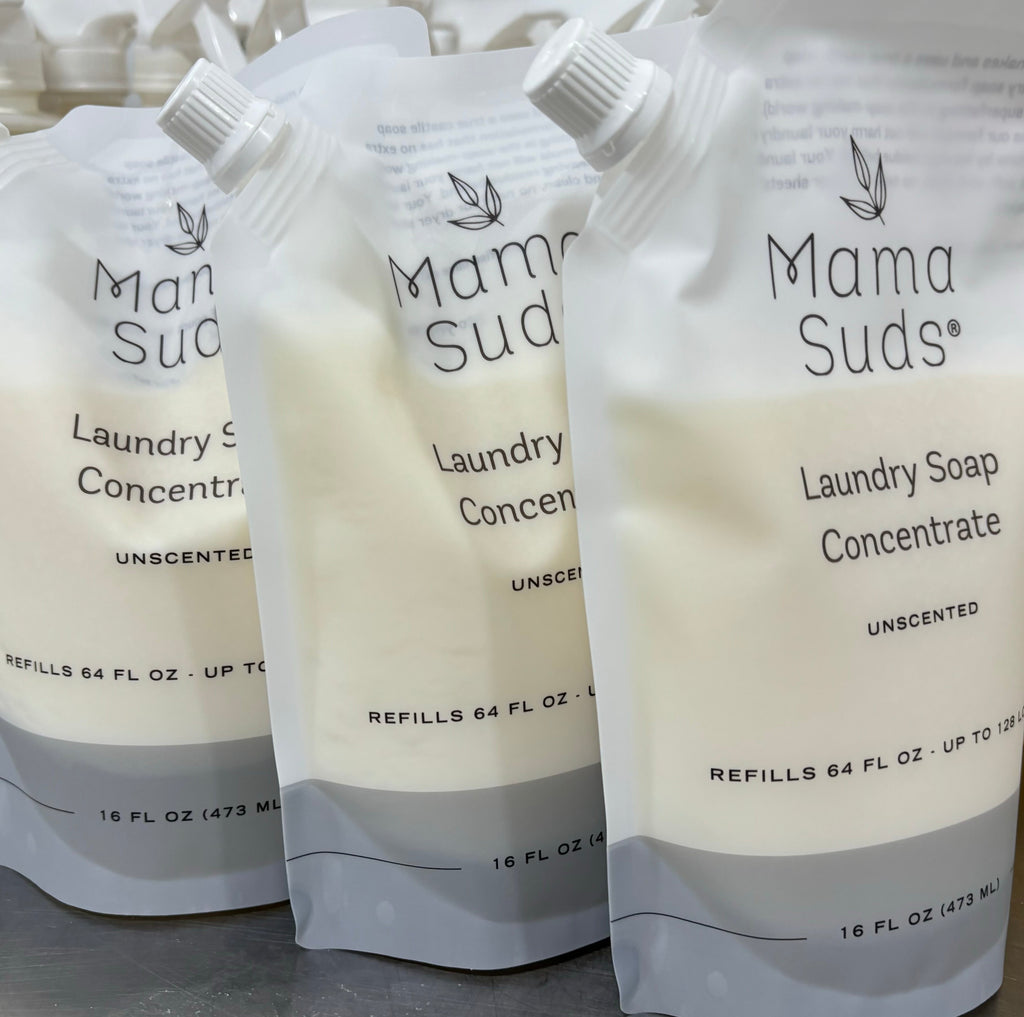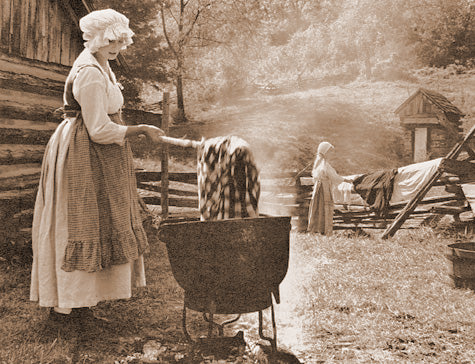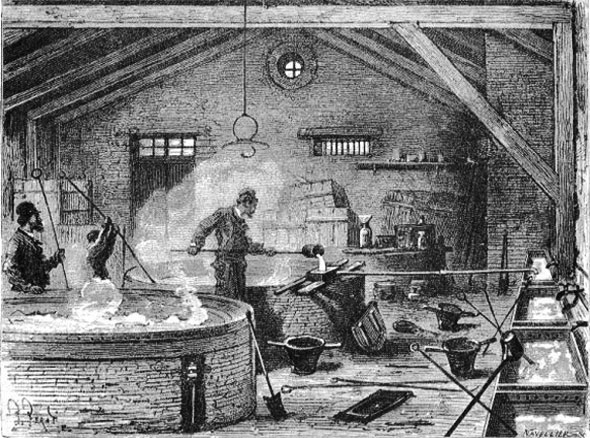
The CleanSuds Blog
Where education and truthful facts are easy to come by.

Natural Cleaning Products for Post-Wildfire Cleanup
Wildfires, like the most recent Smokehouse Creek Fire, are devastating natural events that can leave behind significant damage and debris. In the aftermath, homeowners face the daunting task of cleanup, which can be overwhelming and hazardous. However, using natural cleaning products can make this process safer and more environmentally friendly. In this article, we will explore the benefits of natural cleaning products and provide tips on how to effectively use them for post-wildfire cleanup.
Why Choose Natural Cleaning Products?
- Non-Toxic and Safe: After a wildfire, the air and surfaces in and around your home can be laden with toxic particles and chemicals. Using natural cleaning products ensures that you’re not adding more harmful substances to your environment, making it safer for you, your family, and your pets.
- Environmentally Friendly: Wildfires already cause extensive environmental damage. By choosing natural cleaning products, you help reduce the chemical load on the environment, contributing to its recovery.
- Effective Cleaning: Natural cleaning products can be just as effective as their chemical counterparts. Many natural products contain powerful ingredients like vinegar, baking soda, and essential oils that can tackle tough grime and odors.
Key Natural Cleaning Products for Post-Wildfire Cleanup
- White Vinegar:
- Uses: Excellent for deodorizing, disinfecting, and cutting through soot and grime.
- How to Use: Mix equal parts white vinegar and water in a spray bottle. Spray on affected surfaces and wipe clean with a cloth.
- Baking Soda:
- Uses: Perfect for scrubbing surfaces, absorbing odors, and removing stains.
- How to Use: Sprinkle baking soda on surfaces, let sit for a few minutes, then scrub with a damp sponge or cloth. For deodorizing, place bowls of baking soda around the house.
- Essential Oils:
- Uses: Provides pleasant fragrances, antibacterial properties, and can help mask lingering smoke odors.
- How to Use: Add a few drops of essential oils like lavender, tea tree, or eucalyptus to your cleaning solutions or diffuse them in the air.
- Castile Soap:
- Uses: A versatile soap that can be used for almost any cleaning task, from washing walls to mopping floors.
- How to Use: Dilute castile soap with water for a general-purpose cleaner or mix with baking soda for a tougher scrub.
- Hydrogen Peroxide:
- Uses: An effective disinfectant and stain remover.
- How to Use: Use a 3% hydrogen peroxide solution on non-porous surfaces to disinfect and clean. Be sure to test on an inconspicuous area first to avoid bleaching.
Steps for Effective Post-Wildfire Cleanup
- Assess the Damage:
- Before starting the cleanup, evaluate the extent of the damage. Identify areas that need immediate attention and those that might require professional help.
- Ventilate Your Home:
- Open windows and doors to allow fresh air to circulate. Use fans to help disperse smoke and bring in fresh air.
- Remove Soot and Debris:
- Wear protective gear like masks and gloves. Use a vacuum with a HEPA filter to remove loose soot and debris from surfaces.
- Clean Surfaces:
- Use a mixture of natural cleaning products to clean walls, floors, and furniture. For heavily soiled areas, you may need to repeat the cleaning process.
- Deodorize:
- Natural deodorizers like baking soda and vinegar can help neutralize smoke odors. You can also use essential oil diffusers to freshen the air.
- Launder Fabrics:
- Wash curtains, upholstery, and other fabrics that have absorbed smoke. Use natural laundry detergents and add a cup of vinegar to the rinse cycle for extra deodorizing power.
- Air Purification:
- Consider using air purifiers with HEPA filters to remove any lingering smoke particles from the air inside your home.
Cleaning up after a wildfire is a challenging task, but using natural cleaning products can make the process safer and more sustainable. By opting for non-toxic and environmentally friendly options, you not only protect your health but also contribute to the recovery of the environment. Remember to take your time, prioritize safety, and seek professional help if needed. With patience and the right tools, you can restore your home to a clean and healthy state.

Why Does Laundry Soap Concentrate Separate?
When you open a pouch of MamaSuds Laundry Soap Concentrate, you might notice the contents have separated. This is normal and happens because the concentrate uses natural ingredients, avoiding synthetic emulsifiers that keep everything uniformly mixed.
The Science Behind Separation
Separation occurs due to the lack of water molecules to keep the solution blended. The concentrate is essentially pure laundry soap without added water, making it highly efficient for cleaning.
How to Properly Mix Your Concentrate
- Start with Warm Water: Helps soap molecules dissolve easily.
- Add Water Slowly: Gradually mix in warm water.
- Shake Thoroughly: Ensures even dispersion of soap molecules.
Embrace the Natural Process
Separation is a natural characteristic of the concentrated formula. By properly mixing it, you'll have an effective and eco-friendly laundry solution. Remember, choosing natural means fewer chemicals for your family and the environment.
Happy washing!

Transform Your Laundry Routine with MamaSuds Laundry Concentrate Refill Pouch
Are you tired of harsh chemicals and ineffective laundry detergents that leave residue on your clothes and harm the environment? Say hello to a cleaner, greener laundry routine with MamaSuds Laundry Concentrate Refill Pouch, the ultimate concentrated laundry soap designed for label-reading moms with disposable income. Let’s dive into why this product is a game-changer for your home and the planet.
Why Choose MamaSuds Laundry Concentrate?
1. Eco-Friendly and Nontoxic
MamaSuds Laundry Concentrate is not just any laundry detergent. It’s an eco-friendly, nontoxic laundry soap detergent made with simple, natural ingredients like castile soap, sodium carbonate, and sodium borate. These ingredients are gentle on your clothes and safe for your family, including your little ones with sensitive skin.
2. Reduces Your Carbon Footprint
One of the standout features of MamaSuds Laundry Concentrate is its innovative formula that contains 75% less water. This reduction in water content means a smaller carbon footprint during production and transportation. By choosing MamaSuds, you’re making a conscious decision to reduce your environmental impact.
3. Effective and Residue-Free
Despite its gentle formulation, MamaSuds Laundry Concentrate doesn’t compromise on cleaning power. It effectively removes dirt, stains, and odors without leaving any residue behind. It’s also safe for cloth diapers, ensuring that even your baby’s clothes are perfectly clean and toxin-free.
4. Convenient and Cost-Effective
The MamaSuds Laundry Concentrate Refill Pouch is designed to refill your empty MamaSuds jug, making it a convenient and cost-effective solution for your laundry needs. Each pouch offers the same powerful cleaning as the original jug, but with less packaging and waste.
How to Use MamaSuds Laundry Concentrate
Using MamaSuds Laundry Concentrate is as easy as 1-2-3:
1. Pour: The entire contents of the Laundry Concentrate pours directly into your empty MamaSuds jug (or anything else you have that will hold 64 fl oz).
2. Measure: Measure 48 fluid ounces of warm water into the same container. Warm water helps dissolve the concentrate faster.
3. Shake: Put the cap on and shake the jug thoroughly.
4. Use: Use your MamaSuds Laundry Soap per the directions and let MamaSuds work its magic!

Why MamaSuds Stands Out
What sets MamaSuds apart from competitors? We use real soap (and no it's not bad for your washer). Our concentrated formula not only reduces water usage but also minimizes packaging waste, making it a superior choice for eco-conscious families.
Ready to Make the Switch?
If you’re ready to switch to a safer, more effective, and eco-friendly laundry detergent, it’s time to try MamaSuds Laundry Concentrate. Click [here](#) to purchase your refill pouch today and experience the difference for yourself!
Watch Our Product in Action
Check out our VIDEO to see how easy it is to use MamaSuds Laundry Concentrate and why it’s the best choice for your family and the environment.
Unmasking the Invisible: How to Detect Hidden Toxins in Your Home
Many believe that a clean-looking home is a safe home, but invisible toxins may still be present.
• Common household items often contain harmful chemicals that can pose health risks.
• It's important to read labels and understand terms like "fragrance" that can hide toxic ingredients.
• Switching to non-toxic alternatives like MamaSuds can make a significant difference in creating a healthier home.
• Detox your home room by room, starting with products in the kitchen, bathroom, and laundry room.
• Real stories from satisfied customers show the positive impact of using non-toxic cleaning products.
• Take action today by making small changes and choosing safe alternatives for a toxin-free home.
• Visit MamaSuds for all-natural, non-toxic cleaning products that prioritize the health of your family and the environment.

Family Fusion: Blending Traditions and Trends Under One Roof
Living in a multigenerational home, where grandparents, parents, and children share the same roof, can be a fulfilling and enriching experience. However, to ensure harmony and efficiency within such a diverse living arrangement, specific strategies and adaptations are necessary. By fostering open communication, utilizing modern technology, and adapting your living space, you can create a supportive and cohesive family environment. MamaSuds offers these tips.
Cultivating Open Communication
To maintain harmony in a multigenerational household, it's vital to establish an environment of open communication. Encourage family members to express their feelings and needs without fear of judgment. This openness allows everyone to voice their opinions on household issues, discuss personal challenges, and share joyful experiences, thereby preventing misunderstandings and building mutual respect. Regular family meetings can be an excellent platform for this dialogue, ensuring that each voice is heard and considered.
Decluttering Through Digitization
One practical step towards efficient household management is digitizing paper records. Converting physical documents into PDFs not only frees up physical space but also secures important family records. PDFs are easily accessible and shareable across various devices, maintaining their format and readability. When dealing with sensitive information, such as personal identifiers, here's a solution: ensure to black out these details before sharing the files electronically to protect your family's privacy.
Flexibility in Family Systems
Adapting to the individual needs and schedules of each family member is crucial in a multigenerational home. Implement a flexible system for meal times and the use of shared spaces to accommodate everyone's daily routines, from the early risers to the night owls. Such flexibility helps reduce conflicts and allows for smoother day-to-day operations, making sure no one feels marginalized or overlooked.
Ensuring Privacy and Respect
Developing a protocol for privacy is essential in respecting personal boundaries. It is important to acknowledge and honor the need for individual space, whether it’s a private area for the grandparents or a designated play zone for the children. By agreeing on boundaries and private times, your family can enjoy togetherness without feeling overwhelmed by constant interaction, thus preserving the peace and personal freedom of each family member.
Upgrading Living Spaces
Consider updates to shared living spaces, such as the kitchen and bathrooms, to better serve the needs of all generations. Features like walk-in showers, adjustable kitchen counters, and ample seating can make these areas more accessible and comfortable for everyone, from toddlers to seniors. These improvements not only enhance functionality but also promote safety and independence among family members of all ages.
Collaborative Household Management
Involve all family members in the decision-making process, from young children to the elderly, to foster a sense of belonging and responsibility. Distribute chores equitably, ensuring tasks are suited to each person’s capabilities and schedule. This collaborative approach not only eases the workload on any single individual but also instills a sense of teamwork and contribution towards common household goals.
Bridging Gaps with Technology
Technology can be a powerful tool to bridge the generational gap within your home. Use it to facilitate communication, such as scheduling apps for family appointments or messaging apps for daily check-ins. It can also be a source of education and entertainment that appeals to various ages, such as educational games for children, digital reading for adults, and virtual reality experiences that grandparents and grandchildren can enjoy together.
Fostering a Shared Family Identity
A shared family identity is pivotal in building a supportive multigenerational home. Emphasize the unique contribution of each family member and the collective support system that your family represents. Celebrating individual achievements and milestones as a family not only strengthens bonds but also reinforces the value of support and unity.
Creating a harmonious multigenerational home demands deliberate planning and adaptability in everyday life. Open communication, the integration of technology, and mindful modifications to your living spaces are key to developing a supportive atmosphere. Such an environment enhances family dynamics and proves beneficial across all ages. These efforts ensure that every generation feels valued and connected within the household.
For non-toxic cleaners safe for your home, shop MamaSuds today!
Image via Freepik
Written by Alice Robertson

Eco-Friendly Cleaning Hacks for Busy Families
MamaSuds offers time-saving, eco-friendly cleaning hacks for busy families.
• Their all-purpose cleaner is versatile and can be used on various surfaces for quick touch-ups.
• Castile soap is a great floor cleaner and laundry soap that cuts through grime without leaving harmful residues.
• The brand also offers toilet bombs and pet-friendly solutions for a clean and healthy environment.
• Natural air fresheners can be created with MamaSuds castile soap, water, and essential oils.
• MamaSuds makes cleaning the microwave easy with their all-purpose cleaner.
• By incorporating these eco-friendly hacks into your routine, you can save time, protect your family's health, and support a cleaner environment.
• Explore MamaSuds' range of all-natural, effective cleaning products to transform your cleaning routine and create a healthier home for your loved ones.

Eco-Friendly Cleaning Tips for Busy People
• Set a timer and dedicate small, focused blocks of time to cleaning each day.
• Multitask wisely by integrating cleaning into daily routines and listening to podcasts or audiobooks while doing so.
• Adopt eco-friendly cleaning tools like microfiber cloths, bamboo scrub brushes, and biodegradable sponges.
• Make cleaning a family affair by assigning age-appropriate tasks to each household member.
• Consider hiring an eco-friendly cleaning service during exceptionally busy periods.
• With these tips, maintaining a clean and environmentally friendly home can be both effective and efficient.

The History of Soap Making
Soap making has a rich and varied history that dates back thousands of years. This fascinating journey begins in ancient civilizations and evolves into the contemporary focus on natural and organic products. Let's delve into this intriguing evolution.
Ancient Beginnings

The origins of soap can be traced back to ancient Babylon, around 2800 BCE. Archaeologists have discovered soap-like materials in clay cylinders from this era, along with inscriptions detailing soap-making recipes. These early soaps were made from a combination of animal fats and wood ash.
Egyptian Innovations

The ancient Egyptians further advanced soap making around 1500 BCE. Egyptian manuscripts reveal that they used a substance similar to soap for washing and treating skin diseases. They combined animal and vegetable oils with alkaline salts to create a cleaner that was more sophisticated than their Babylonian predecessors.
Greek and Roman Contributions
The knowledge of soap making spread to the Greeks and Romans, who enhanced the process significantly. The Romans, in particular, popularized the use of soap. By the first century CE, they had established public baths and began using soap as an essential part of their hygiene routine. Roman soap was typically made from tallow and ashes, which were boiled together.
Medieval Europe and the Renaissance

During the Middle Ages, soap making became a respected craft in Europe. Soap makers formed guilds, and production methods improved. By the 13th century, soap making centers had emerged in Italy, Spain, and France. These regions, known for their high-quality olive oil, produced a soap that was both effective and luxurious.
The Renaissance period saw further advancements in soap making. Scientific discoveries led to better understanding and refining of soap production techniques. The use of perfumes and colors became more common, giving rise to the luxurious and scented soaps we know today.
The Industrial Revolution

The Industrial Revolution in the 18th and 19th centuries revolutionized soap making. With the invention of new machinery and the discovery of chemical processes like saponification, soap could be mass-produced. This accessibility turned soap from a luxury item into a household staple.
Modern Era: Emphasis on Natural and Organic Products
Today, there is a growing emphasis on natural and organic soaps. As consumers become more conscious of what they put on their skin, many are turning away from commercial soaps laden with synthetic chemicals and artificial fragrances. Instead, there is a resurgence in traditional soap-making methods using natural ingredients.
Modern natural soaps often include:
- Plant-based oils such as coconut, olive, and palm oil
- Essential oils for fragrance and therapeutic properties
- Herbs and botanicals like lavender, chamomile, and calendula
- Natural colorants such as clays and plant extracts
These ingredients not only make the soap gentler on the skin but also environmentally friendly.

Why Your Allergy Symptoms Can Improve with Non-Toxic Cleaning
• Reading labels and choosing natural ingredients can improve air quality and be gentler on skin.
• Non-toxic cleaners are better for the environment and don’t release harsh VOCs.
• Simple alternatives like vinegar, baking soda, and essential oils can be just as effective as chemical cleaners.
• Making the switch to non-toxic cleaning is a lifestyle change that can benefit your health.


